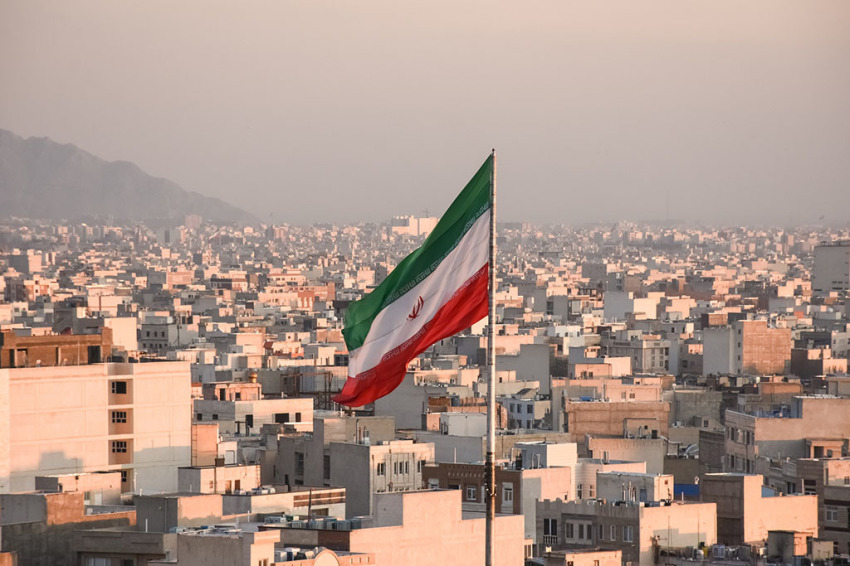3 Christians subjected to physical, psychological torture in Iran

Three Christians in Iran were tortured before their release on bail on Nov. 17 amid charges of propagating religion contrary to Islam, a religious rights group reported.
Jahangir Alikhani, Hamed Malamiri and Gholam Eshaghi were arrested by agents from the Islamic Revolutionary Guard Corps (IRGC) in September and detained for nearly two months before their release, according to rights group Article 18.
“Jahangir, Hamed and Gholam were reportedly subjected to physical as well as psychological torture during prolonged interrogations and asked to write letters renouncing their Christian faith and expressing remorse for their actions in order to secure their release,” Article 18 reported.
The three Christians originally had been arrested last Christmas, along with 17 others, by Ministry of Intelligence agents in Noshahr and nearby Chalus, the group stated. Later released, the three Christians were re-arrested in September and in October were summoned to the prosecutor’s office along with nine others to face charges of “propagating a religion contrary to Islam” and “collaborating with foreign governments,” according to Article 18.
“They were then summoned to appear at the 1st Branch of the Revolutionary Court of Nowshahr on Nov. 10, but the hearing was adjourned as not every defendant — including the three detained — was present,” the group reported.
The indictment stated that the Christians were charged under amended Article 500 of the penal code that already has resulted in long prison sentences for several Christians; the law has been labelled a “full-on attack on religious freedom,” according to Article 18.
“They have identified themselves as Christian during their defense,” Prosecutor Mohammad Reza-Ebrahimi wrote in the indictment, according to Article 18. “And this is supported by the messages exchanged in their phones,” as well as through the “Gospels and other Christian literature found in their possession.”
The prosecutor stated that the 12 were criminally liable for having “set up groups to teach the Christian religion,” the group reported.
“The Islamic Republic of Iran claims to protect the rights of Christians as one of three recognized religious minorities, but converts are not treated as Christians and continue to be arrested on account of their religious identity, as clearly shown in this latest indictment,” Article 18 stated.
One of the 12 Christians charged in October with “propagating a religion contrary to Islam” and “collaborating with foreign governments,” 40-year-old Javad Amini, was arrested by IRGC agents on the same day that the three others won bail on Nov. 17, the rights group stated. Amini was arrested along with his uncle, who is not believed to be connected to the case.
Sources told Article18 that IRGC vehicles surrounded Amini’s car and eventually took him and his uncle to a detention center in Sari.
“The agents confiscated Javad’s keys from him and let themselves into his home, without knocking, terrifying his wife and 10-year-old daughter,” Article 18 reported. “His wife was also later interrogated.”
The U.N. last week passed a resolution calling on Iran to stop monitoring people based on their religion and to “release all religious practitioners imprisoned for their membership in or activities on behalf of a minority religious group … and to ensure that everyone has the right to freedom of thought, conscience and religion or belief, including the freedom to have, to change or to adopt a religion or belief of their choice, in accordance with its obligations under the International Covenant on Civil and Political Rights,” Article 18 reported.
The “widespread and rampant persecution of Christians” and other religious minorities was noted this month by the son of the former Shah of Iran, deposed in 1979.
Saying his country was “once a bastion of religious liberty” before the 1979 Islamic Revolution, Reza Pahlavi said in a Nov. 19 post on X that Iranian Christians, along with Jews and the Baha’i, have seen their leaders detained, forced to flee the country and sometimes killed.
“Today the persecution continues, and Iranian Christians, especially Christian converts, are deprived of even the most basic rights, including access to churches,” Pahlavi wrote. “Christians are routinely imprisoned for their beliefs, facing absurd charges of ‘acts against national security’ and ‘collaboration and espionage for enemy states.’”
Despite such daunting challenges, Pahlavi said Christians remain resilient in faith and courage, though “their struggle is far from over, and they need the support of the global Christian community more than ever.”
Pahlavi, who founded the Iranian exile umbrella group National Council of Iran and is now based in Great Falls, Virginia, stated that he had hope that an end to the regime in Iran would result in a new era of religious freedom in Iran.
“A free and democratic Iran will once again embrace the diversity of faiths and beliefs that have been a part of our nation’s rich history for millennia,” he stated. “Christians, Jews, Baha’is, Zoroastrians and Muslims can once again live together in harmony, free to practice their religions without fear of persecution.”
Pahlavi was writing following his interview with EWTN (Eternal Word Television Network) Global Catholic Network, where he commented on religious minorities’ lack of opportunities and discrimination in Iran. He called for establishment of a secular democracy that would embrace separation of religion and state.
Iran ranked ninth on Christian support organization Open Doors’ 2024 World Watch List (WWL) of the 50 countries where it's most difficult to be a Christian. The WWL report noted the “growing involvement of the IRGC in conducting raids on house churches, and a higher incidence of acts of violence committed during arrests and interrogations.”


























